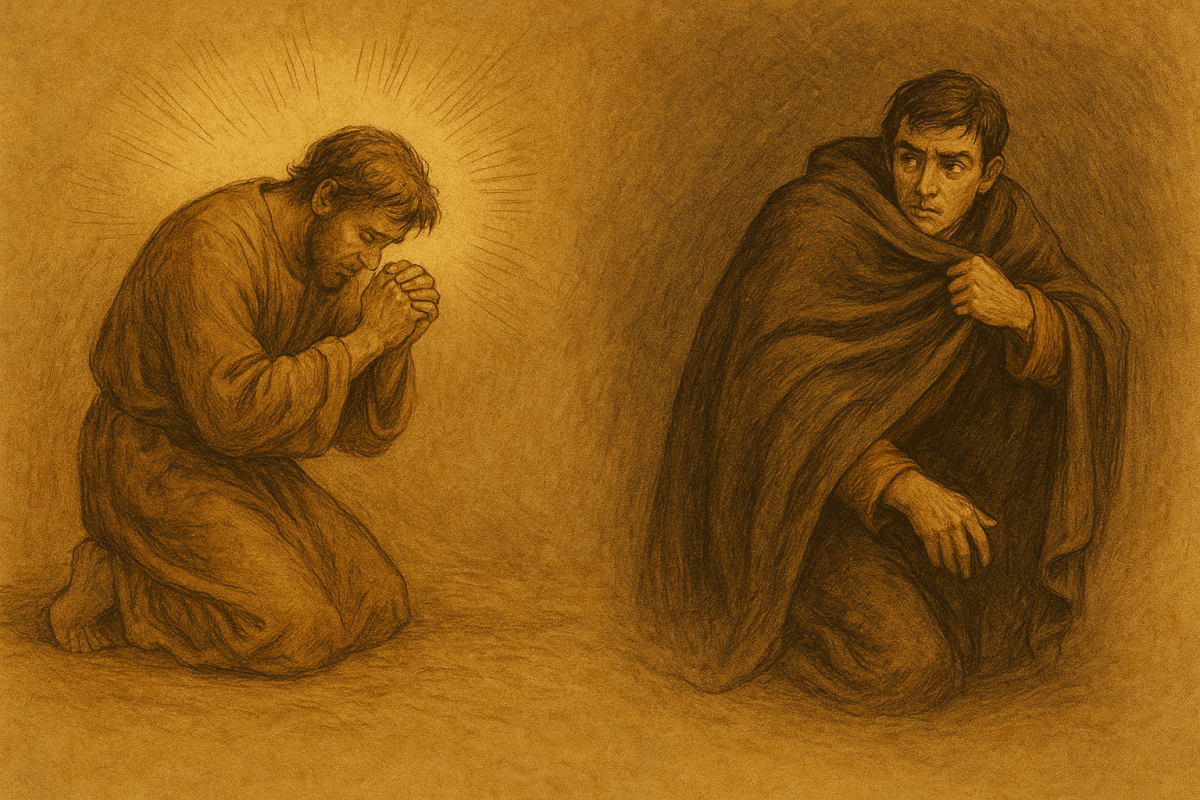This article will discuss confession and concealment, and how each one affects us. From the earliest moments of humanity, concealment has been our instinctive response to failure. Adam and Eve hid themselves in the garden after they sinned (Genesis 3:8–10).
Fear
Shame
Guilt
These are not unfamiliar feelings.
But Scripture calls us to something better. Not concealment—but confession. The real choice before us is always this: confession or concealment.
Our Default: Concealing Sin
Our fallen nature prefers to:
Hide
Minimize
Justify our wrongdoing
It feels safer in the moment.
We may think we are avoiding judgment, preserving our image, or even protecting others. But in reality, concealing sin delays healing and prevents us from fully experiencing the grace of God.
Proverbs 28:13 teaches that whoever conceals their sins will not prosper, but the one who confesses and renounces them finds mercy.
The Call to Confess
Scripture is consistently clear: God desires truth in our inner being (Psalm 51:6). He calls us to honesty.
David learned this firsthand. In Psalm 32:3–5, he reflects that:
When he kept silent, his bones wasted away through groaning all day long.
When he acknowledged his sin and refused to cover it up, confessing his transgressions to the Lord, he was forgiven and set free from guilt.
This shows us the shift:
Silence leads to suffering.
Confession brings forgiveness and relief.
Why We Confess: The Gospel Foundation
As believers, we don’t confess sin to earn salvation. We confess because we have already been saved.
We are not striving for grace—we are responding to it. The finished work of Christ—His death, burial, and resurrection—made a way for full forgiveness and restoration.
First John 1:9 reminds us that if we confess our sins, God is faithful and just to forgive us and cleanse us from all unrighteousness.
Confession is not about surprising God. It is about agreeing with Him. By confessing, we:
Step into the light
Allow grace to do its work
Participate in the sanctification process
The Consequence of Concealment
When we continue to hide, we don’t just stay stuck—we shrink.
Our hearts become hard
Our faith grows cold
Our relationships become shallow
As long as we avoid responsibility, we also avoid the spiritual growth that only comes through humble honesty before God.
James 4:6 makes this clear, teaching that God opposes the proud but gives grace to the humble. When we step out of hiding, God meets us with mercy.
A Better Way: Living in the Light
In a world that teaches us to protect our image, Scripture invites us to pursue integrity. To live in the light—even when it feels uncomfortable.
James 5:16 tells believers to:
Confess sins to one another
Pray for each other
Experience healing together
Confession is not just vertical—between us and God—it is also horizontal. Healing often comes through honest community.
Closing Thought: Step Into the Light
Are you hiding something today?
A sin you’ve buried?
A pattern you’ve justified?
A truth you’ve refused to face?
Confession is not weakness. It is faith in the gospel. It is the step that unlocks:
Healing
Mercy
Spiritual growth
Jesus already bore our shame on the cross. There’s no need to keep wearing it ourselves.
Psalm 32:1 reminds us that blessed is the one whose transgressions are forgiven and whose sins are covered.
Key Takeaways: Confession or Concealment
Concealment delays healing and keeps us stuck in guilt.
Confession brings freedom, forgiveness, and relief.
The gospel gives us confidence to confess because we are already saved.
Hiding stunts spiritual growth and hardens the heart.
Living in the light leads to true healing and restoration.


